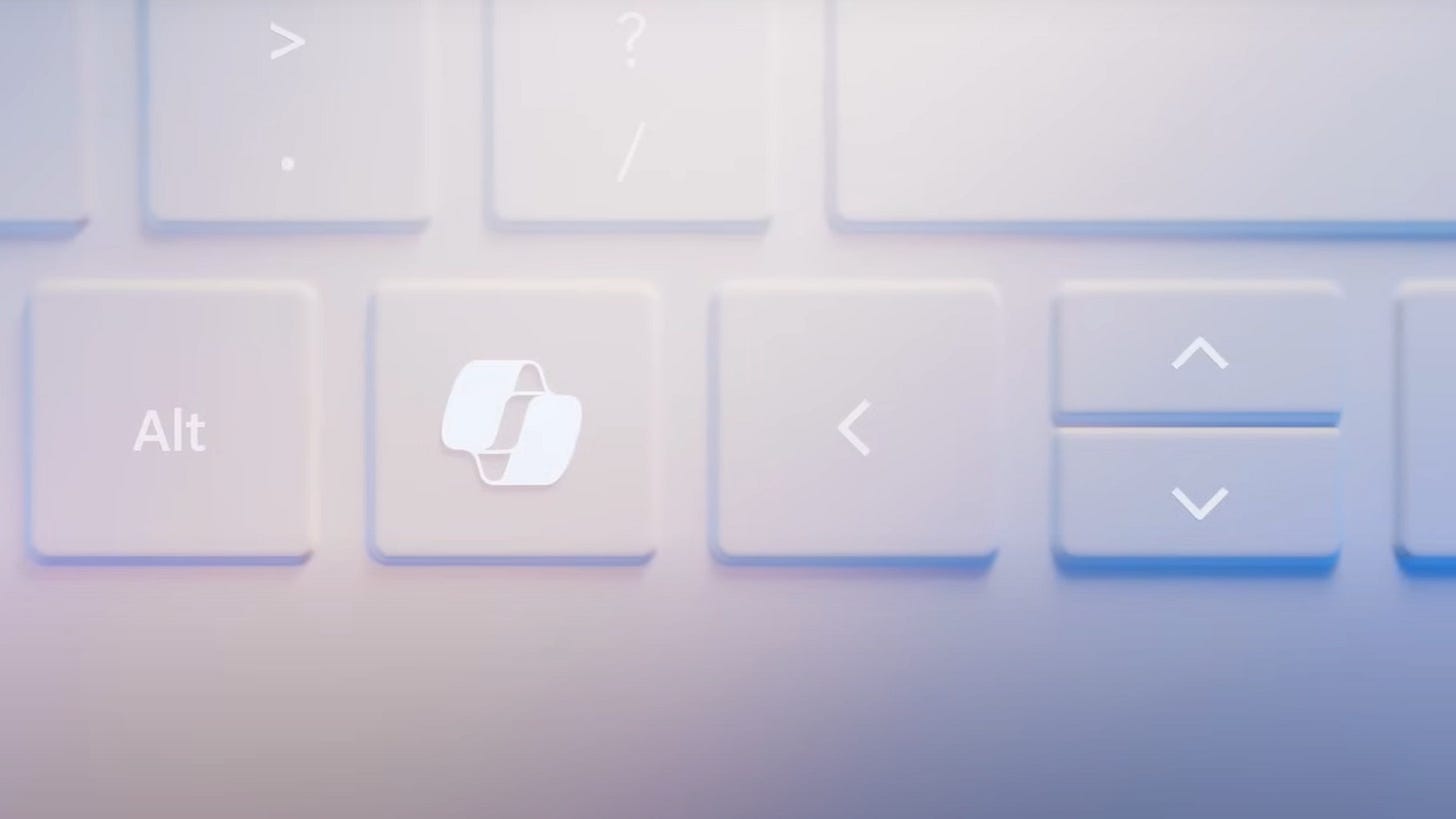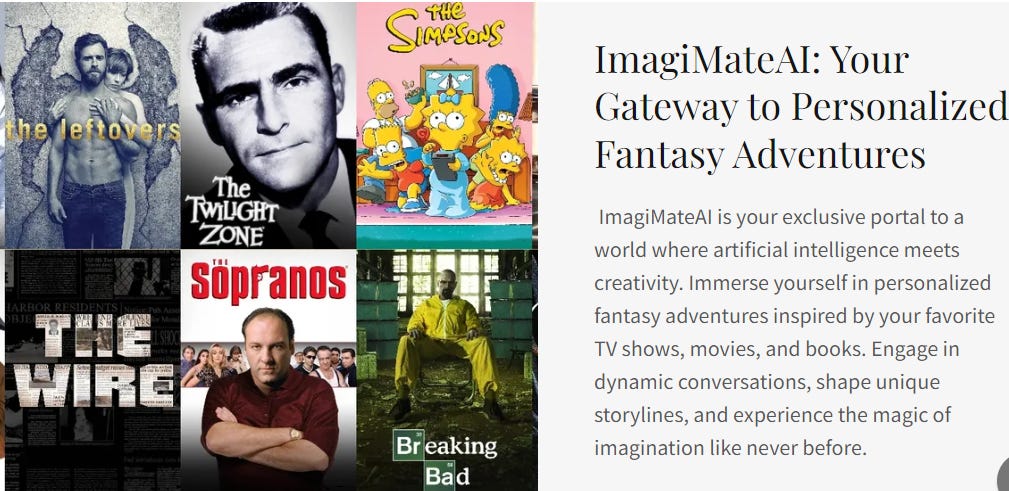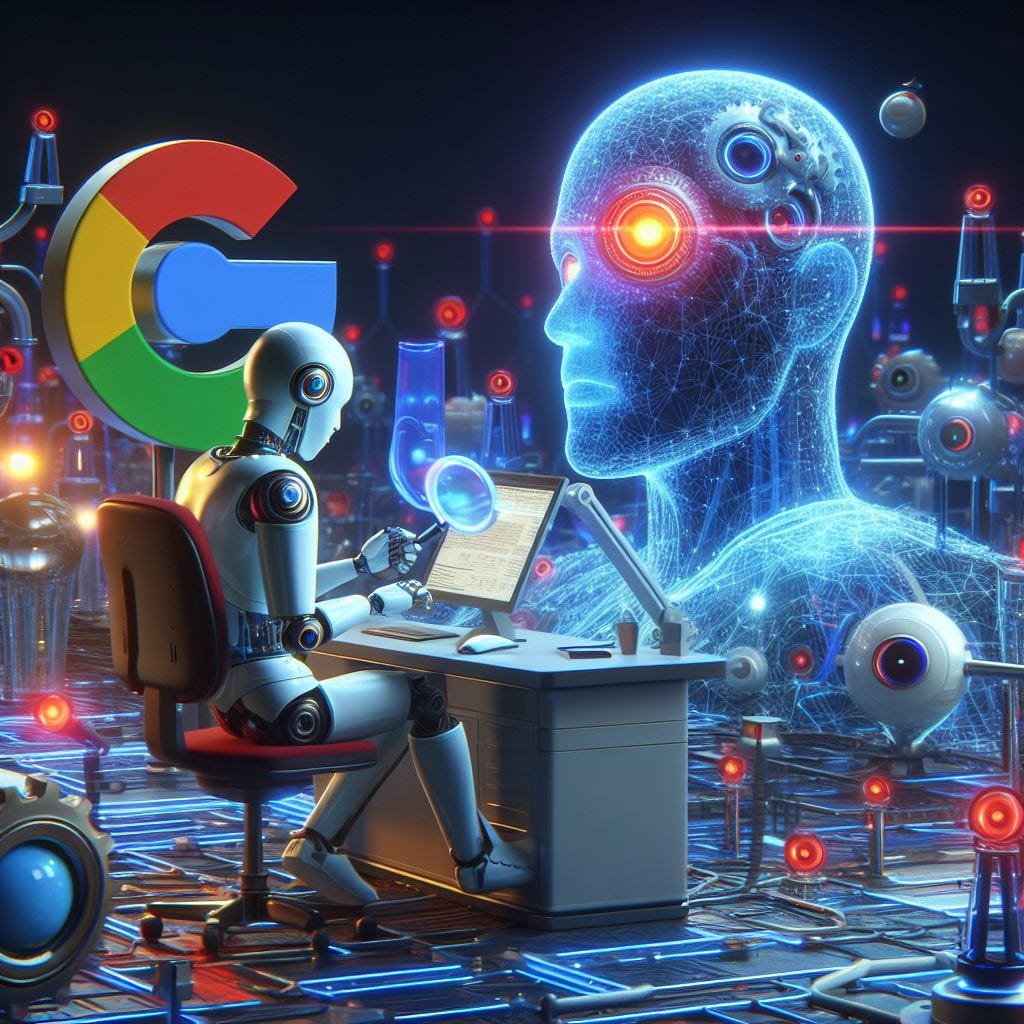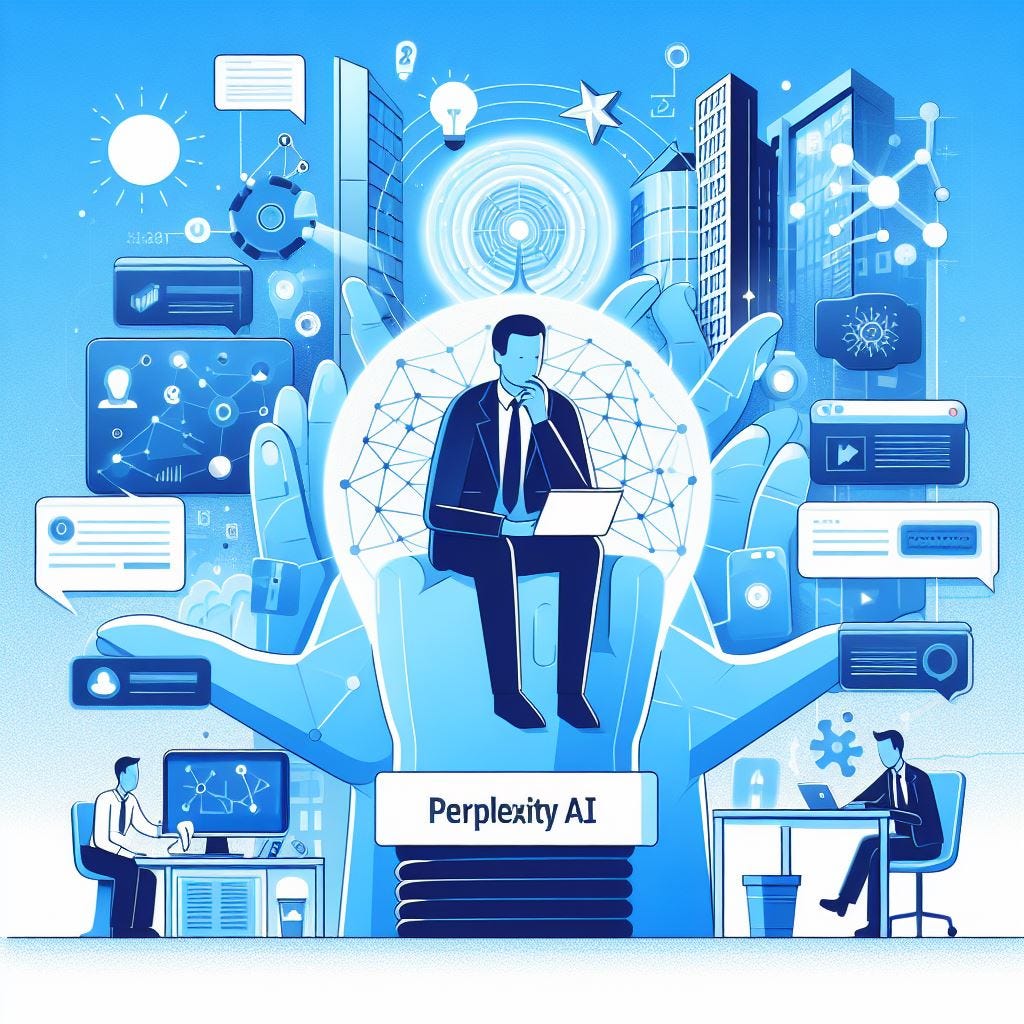Microsoft's AI Keyboard Button to Optimize Traffic and Democratize AI-Powered Search - Perplexity Seeks to Reinvent Google
Microsoft Adds Dedicated AI Assistant Button to Windows Keyboards While Google Tests AI Traffic Optimization System and Perplexity AI Leverages $70M Funding Round to Challenge Google's Search Dominanc
Microsoft Adds Dedicated AI Button to Windows Keyboards
- Microsoft introducing new "Copilot" button on Windows keyboards, first change in 30 years
- Summons Microsoft's AI assistant powered by Bing to help with tasks
- Replaces right CTRL or menu key; launches regular Search if AI not enabled
- Debuting on Surface devices & Windows 11 PCs from other manufacturers
- Part of Microsoft's push into AI as "year of the AI PC"
Adthos Uses AI to Generate Audio Ads from Images
- Adthos releases new AI feature to create audio ads from single images
- Analyzes images to write script, pick voices/music, produce full audio spot
- Aims to unlock audio ad potential for any business that can take a picture
- Users upload image, AI handles rest of audio ad creation process
- CEO calls feature "game-changer" in democratizing audio advertising
HEADLIME IS THE GO-TO GPT-3 TOOL FOR MARKETERS.
WRITESONIC IS ONE OF THE BEST ARTIFICIAL INTELLIGENCE-POWERED COPYWRITING GPT-3 TOOLS.
Google Testing AI-Powered Traffic Optimization System
- Google's Project Green Light uses AI to optimize city traffic lights
- Analyzes Google Maps data to ID congestion, suggest light timing changes
- Being tested in Seattle, early success clearing gridlock
- Shifting lights by seconds can significantly improve flow
- Part of push to reduce emissions from idling vehicles
- Plans to provide system for free to thousands of cities globally
Perplexity AI Raises $70M to Build AI-Powered Search Engine
- Perplexity raised $70M, now valued at $520M post-money
- Founded 2022, offers AI-powered search via natural language
- Users query assistant, get summarizes with citations
- Combines in-house and third-party AI models like GPT-4
- Faces challenges around sustainability, misinformation, more
- But 10M monthly active users, $100M raised so far
- Aims to reinvent search, bring "power of AI to billions"
Microsoft Adds Dedicated AI Button to Windows Keyboards
Microsoft is introducing a new "Copilot" button to Windows keyboards, marking the first major change to the Windows PC keyboard design in nearly 30 years. The ribbon-shaped button, located near the spacebar, will summon Microsoft's AI chatbot assistant powered by Bing. By pressing the key, users can ask the AI companion to help with tasks like summarizing articles, shopping online, tweaking PC settings, or even creating original music.
The Copilot key will replace the right CTRL button or menu key on some devices. On PCs without AI capabilities enabled, pressing the button will launch regular Windows Search. Microsoft plans to debut the button on upcoming Surface devices and other Windows 11 computers from third-party manufacturers. While AI is more prominent on phones, Microsoft is calling 2024 the "year of the AI PC" as tech companies compete in the AI space despite ethical and legal concerns. The Windows key itself was introduced in the 1990s and has been a mainstay since. With the new Copilot button, Microsoft aims to "empower people to participate in the AI transformation more easily."
Adthos Uses AI to Generate Audio Ads from Images
Audio advertising platform Adthos has released a new AI feature that creates fully produced audio ads using just a single image. Users can now generate complete audio spots by uploading a photo of a product, billboard, storefront, or other visual content.
Leveraging the latest AI technology, the platform analyzes visual elements to write an engaging script, select suitable synthetic voices, add music and sound effects, and deliver a finished audio ad. Adthos uses AI to decode brands, slogans, styles, target audiences and more from an image to inform the creative direction. The AI then handles scriptwriting, voice acting, audio mixing and more to transform a simple photo into an impactful audio ad in minutes.
According to Adthos CEO Raoul Wedel, "Our new feature is a game-changer, instantly unlocking the potential of audio advertising for anyone that can take a picture." Part of the company's Self-Service Creative Studio, the new capability aims to simplify audio ad creation using AI, making the medium more accessible to businesses of all sizes.
Google Testing AI-Powered Traffic Optimization System
Google's new Project Green Light aims to optimize traffic flow in cities by using AI to adjust traffic lights. Currently being tested in Seattle, the system analyzes Google Maps data to identify congestion points and suggest tweaks to light timing. Shifting lights by just a few seconds can significantly improve traffic flow.
Experts say managing traffic is an ideal application for AI in its current state, as pattern recognition from massive datasets is precisely what machine learning excels at. While traffic management systems already exist, Project Green Light adds new metrics like reducing idling time and carbon emissions from congestion. Google is providing the service for free and plans expansive rollout. After early success in Seattle, the program now controls signals at 70 intersections across 13 global cities, reducing travel delays by up to 30%. Still, some experts question whether AI can account for irrational human driving behavior.
Perplexity AI Raises $70M to Build AI-Powered Search Engine
Startup Perplexity AI, which offers an AI-powered search engine, has raised $70 million in a funding round led by IVP. The company is now valued at $520 million post-money. Founded in 2022 by former OpenAI researchers, Perplexity aims to reinvent search using natural language processing.
The platform allows users to query an AI assistant with free-form questions. The AI responds with a summary containing citations, and users can ask follow-ups to learn more. Perplexity combines its own proprietary models with third-party systems like Claude and GPT-4. Paid subscribers access additional features like image generation and document analysis.
Perplexity positions itself in contrast to traditional search engines like Google. Its chat-style interface resembles popular AI tools such as ChatGPT and Copilot. While the company claims superior filtering and discovery compared to rivals, many of its features could likely be replicated. Beyond search, Perplexity is beginning to serve its AI models via API.
The startup faces sustainability challenges given the high costs of running AI systems, as well as issues around misinformation, bias, copyright disputes and traffic diversion from publishers. However, with $100 million raised so far and 10 million monthly active users, Perplexity aims to bring "the power of AI to billions" by reinventing online search and knowledge sharing.










